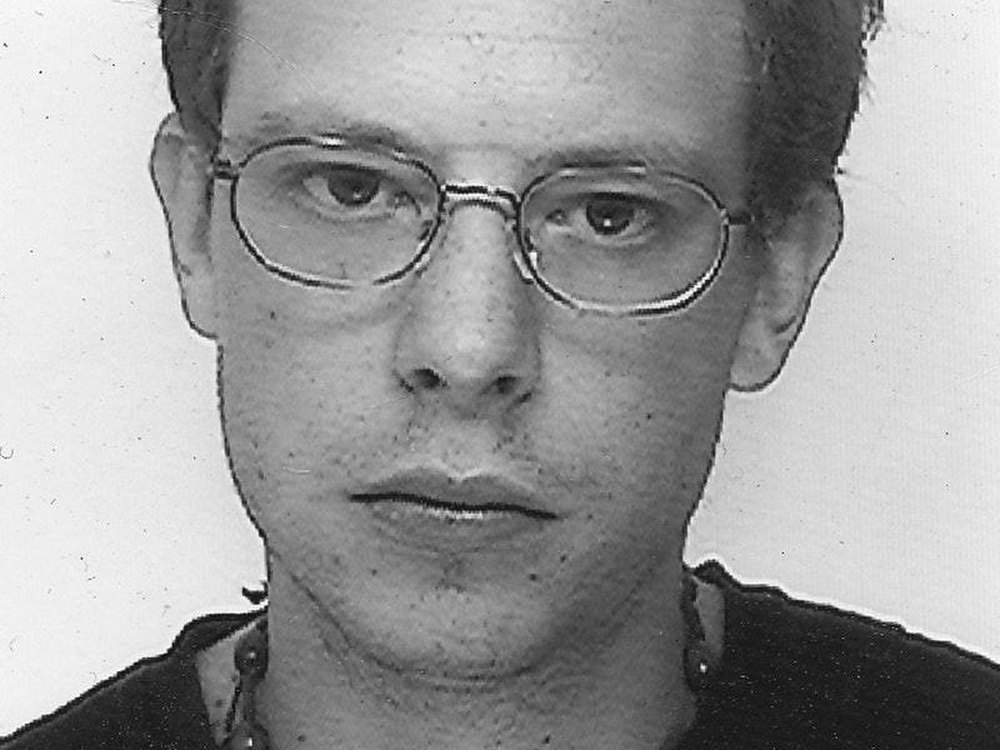Thomas Orchard custody death: IOPC misconduct direction ‘not taken lightly’
A force has been directed to hold misconduct hearings against six officers following the death of a man with mental health problems after he was restrained in custody.
A Devon and Cornwall Police sergeant, two detention officers and three constables will face the disciplinary hearings in a course of action “not taken lightly” by the Independent Office for Police Conduct (IOPC).
Thomas Orchard, 32, suffered a cardiac arrest in his cell at Exeter’s main police station in Heavitree Road and died of asphyxia in hospital seven days after being arrested in October 2012.
Mr Orchard, who had paranoid schizophrenia, was held down with an emergency response belt (ERB) across his face.
In March last year, custody sergeant Jan Kingshott, and civilian detention officers Simon Tansley, and Michael Marsden, were acquitted at Bristol Crown Court of Mr Orchard’s manslaughter by gross negligence. They denied the alleged offence.
The IOPC, which investigated the circumstances surrounding Mr Orchard’s death, submitted a report stating that seven officers and staff had cases to answer for gross misconduct.
A spokesperson for the IOPC said Devon and Cornwall Police disagreed with the findings and so decided to direct the force to hold misconduct proceedings for six of the officers and staff.
One constable involved in the initial arrest of Mr Orchard should be dealt with through management action, it added.
The rulings relate to allegations over their use of force.
IOPC regional director Sarah Green said: “The decision to direct the hearings has not been taken lightly.
“In directing the force to hold these proceedings, I have taken into account the seriousness of the conduct complained of and the need to uphold proper professional standards and maintain public confidence in the police.
“It is important that the hearings will scrutinise the evidence in this case, and be presented on the basis of that evidence, as opposed to any opinions expressed by us or the force.
“It will be for the future panel to determine whether or not professional standards were breached.”
James Vaughan, the deputy chief constable of Devon and Cornwall Police, said: “This is lengthy and complex correspondence for the force, and the officers and staff concerned will need to take the time they need to consider their position and the subsequent response to it.
“We continue to offer support to the staff involved in these proceedings but the effect this has had on them and the Orchard family since October 2012 cannot be underestimated.
“We will now further discuss the matter with the IOPC.”
In a statement issued through the charity Inquest, Mr Orchard’s family said: “Since the trial a year ago, in which one of the officers and the two custody officers were found not guilty of manslaughter, our family has been shocked and outraged by the force’s persistent refusal to hold disciplinary hearings to establish if their staff seriously breached professional standards.
“We now urge Devon and Cornwall Police to hold the hearings swiftly and without further dispute; to consider asking another force to present the case; and to open the proceedings to the public.
“Only by holding open, honest and transparent hearings can our family’s confidence be restored and the public interest be served.
Mr Orchard was experiencing a mental health crisis when he was arrested in Exeter city centre at 11am on October 3, 2012.
The church caretaker appeared to attempt to bite an officer as he was taken through the door into the holding of the custody suite and was then held down by three officers.
A risk assessment by the force did not identify or refer to any risks to detainees when the belt was used around the head.
The manslaughter trial heard that Mr Orchard was carried to a cell and placed chest-down on a mattress for 20 minutes, where he was searched while handcuffed, in restraints and with the ERB around his face.
He was subsequently freed from the restraints – making “little or no movement” – and left lying face down in the locked cell.
It was a further 12 minutes before officers re-entered the room and discovered that he was not breathing.
A pathologist found he died from severe hypoxic-ischemic brain damage, caused by a prolonged cardio-respiratory arrest “following a violent struggle and period of physical restraint”.
The ERB is no longer used about the head following Mr Orchard’s death.


